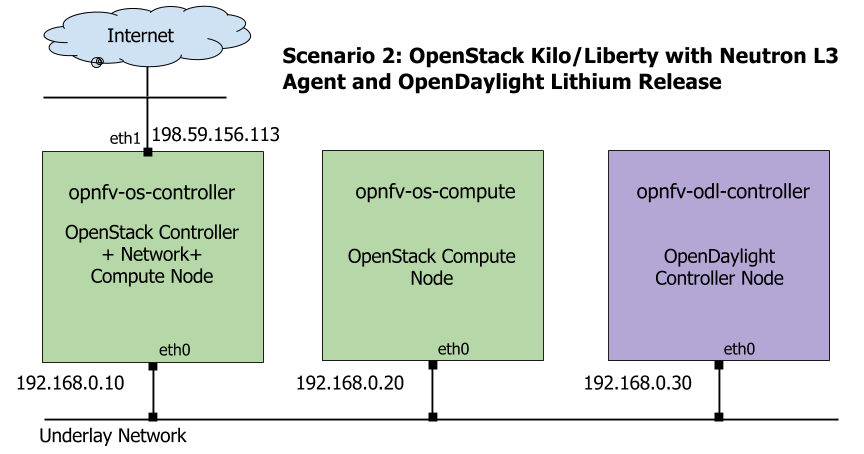3.1. Infrastructure Setup¶
In order to set up the service VM as an IPv6 vRouter, we need to prepare 3 hosts, each of which has minimum 8GB RAM and 40GB storage. One host is used as OpenStack Controller Node. The second host is used as Open Daylight Controller Node. And the third one is used as OpenStack Compute Node.
Please NOTE that in case of HA (High Availability) deployment model where multiple controller
nodes are used, the setup procedure is the same. When ipv6-router is created in step SETUP-SVM-11,
it could be created in any of the controller node. Thus you need to identify in which controller node
ipv6-router is created in order to manually spawn radvd daemon inside the ipv6-router namespace
in steps SETUP-SVM-24 through SETUP-SVM-30.
For exemplary purpose, we assume:
- The hostname of OpenStack Controller+Network+Compute Node is
opnfv-os-controller, and the host IP address is192.168.0.10 - The hostname of OpenStack Compute Node is
opnfv-os-compute, and the host IP address is192.168.0.20 - The hostname of Open Daylight Controller Node is
opnfv-odl-controller, and the host IP address is192.168.0.30 - We use
opnfvas username to login. - We use
devstackto install OpenStack Kilo. Please note that OpenStack Liberty can be used as well.
The underlay network topology of those 3 hosts are shown as follows in Fig. 3.1:

Fig. 3.1 Underlay Network Topology - Scenario 2¶
Please note that the IP address shown in Fig. 3.1 are for exemplary purpose. You need to configure your public IP address connecting to Internet according to your actual network infrastructure. And you need to make sure the private IP address are not conflicting with other subnets.
